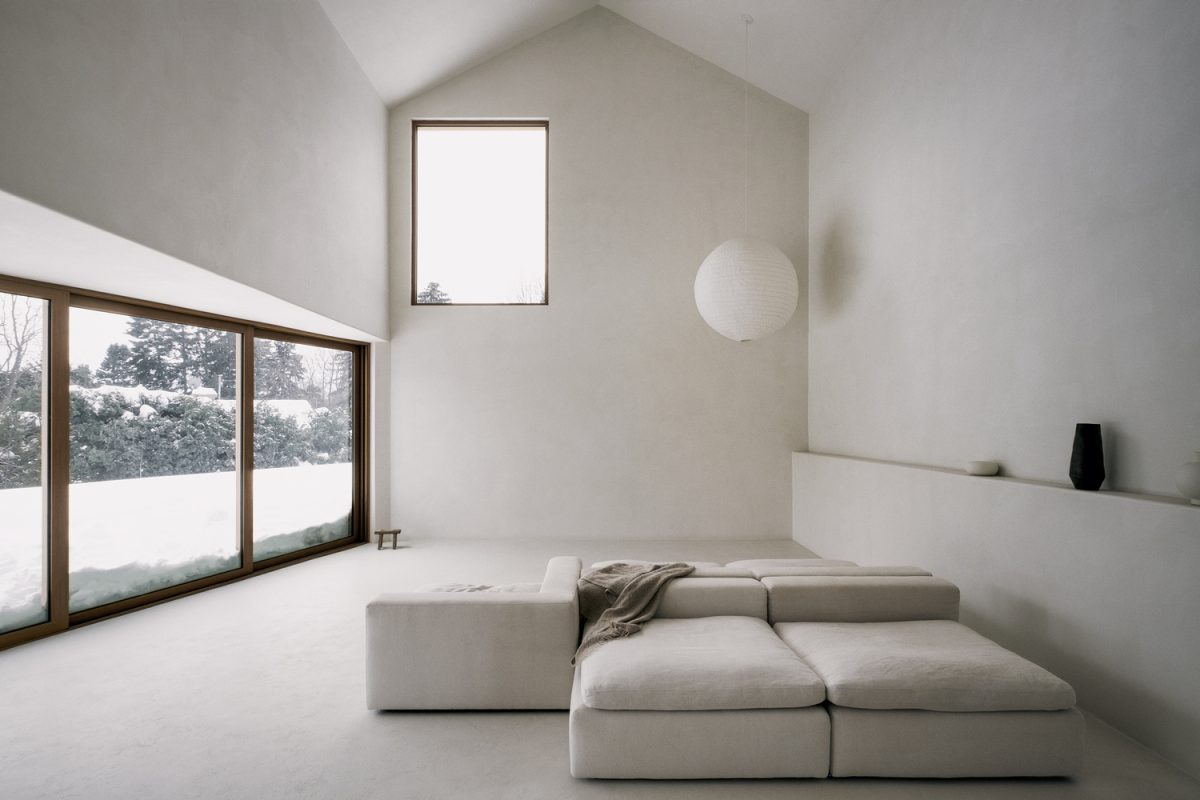
Courtesy of ArchDaily
“Reuse, reduce, recycle” is a fairly common reprise. It may sound simplistic, overused, and even annoying, but the advice offers surprising and significant benefits for you and your life.

The minimalism lifestyle rejects hoarding, holding onto items, and clutter. Instead, minimalism emphasizes the importance of quality over quantity and prioritizes thoughtfulness in budget, cleaning, and space; Something we all need to acknowledge the importance of, and begin to understand why minimalists are who they are, and the importance it carries through their lives.
It can be easy to write off minimalism as having ‘less stuff’, but understanding it as a lifestyle can make it easier to see the resounding benefits. The impact of less consumption allows for appreciation and use of what you have, all while learning to prioritize what is necessary to have over what may just be another materialistic item, or micro trend. Try this: name everything you got for Christmas or your birthday last year. Did you forget, or remember one or two major things? How many could you remember? Do you remember who gave them?
An article regarding gift giving in the New York Post reports, “New research shows that more than half (53 percent) of the gifts people received last year have already been completely forgotten.” The consumption vs. use ratio is extremely unbalanced, which, adherents of minimalism suggest, can lead to an unbalanced life.
Rather than falling into micro trends and what the girl next to you in class is talking about, build appreciation for what you know you will love and use for a long time. When embracing the importance of having less, you will begin to embrace what you do have. If you don’t want to be grouped with the 53% of people who have forgotten what they get each year, write a list of things you know you actually want; and if you’re really trying to think of things to write, that is an easy identifier that you do not need the item.
Becoming Minimalist’s Befits of Minimalism claims that “[t]he sense of freedom that comes from minimalism is truly refreshing. You will no longer feel tied to the material possessions in your home and you’ll feel a new sense of independence.” In other words, a weight will be lifted off your shoulders knowing you can focus on one thing at a time, rather than constantly carrying the mental burden of so many objects in your life.
Another key aspect of minimalism is money. Financially speaking, being a minimalist is beneficial to your savings and spending. You get so much more out of your money if it is being spent on something that will last long term and serve you well, rather than an impulse purchase that drains $50 from your bank account. Those impulse buys may be on things you will probably forget even existed within the next year.
After interviewing a few juniors at Stone Ridge, and asking questions surrounding items bought in the past, it seems that minimalism goes further than just a clean room, but an appreciation for significance of items purchased. After the quick interviews, two contrasting responses stood out: Maddie Albina’s and Alessandra Chiaramonte’s recollection of last year’s holiday gifts. Maddie stated that last year for Christmas she made a point to ask for only three gifts. She asked for a Stanley water bottle, new Airpods, and a puffer jacket, all of which she received. On the contrary, Alessandra’s list went two pages long, with no items sticking out in her mind, and although she received various items ranging from clothes, to gift cards, to shoes, she could not pinpoint more than three of the many things she got.
“I just tried to fill out my list in time for December, now looking back I’ve probably lost most of the gifts.”
Although these responses were specifically related to Christmas gifts, this is just one example of all the things we may receive year-round. Whether it be purchased ourselves, a birthday, or another holiday, the same outcomes are common. These two students highlight how beneficial it could be to keep a more minimalistic lifestyle, as it shows we will learn how to appreciate what we have, and what we can do with what we have. Maddie makes frequent use of the few things she got, whereas Alessandra feels the opposite, a relatable message that can inspire us to make a change.
The benefits to minimalism can lead to carrying yourself with a lighter stress load everyday due to saying goodbye to the unnecessary and unused items sitting throughout your house.
Finally, As Mia Danielle, a firm minimalist and writer, explains in her article Legit Benefits Of Minimalism And Living With Less, “Just like any other area of focused improvement, minimalism is a mindset shift. When you decide to get healthy it requires you to change the way you think about food and exercise. Since minimalism has a strong emphasis on prioritization, it naturally continues into other areas of your life.” Don’t wait until tomorrow or delay it any more. Embrace a minimalist mindset, and remember, less is more.